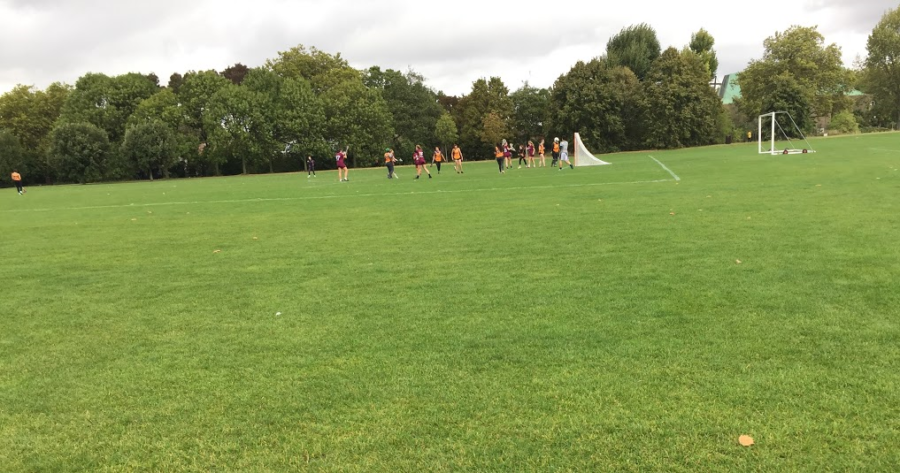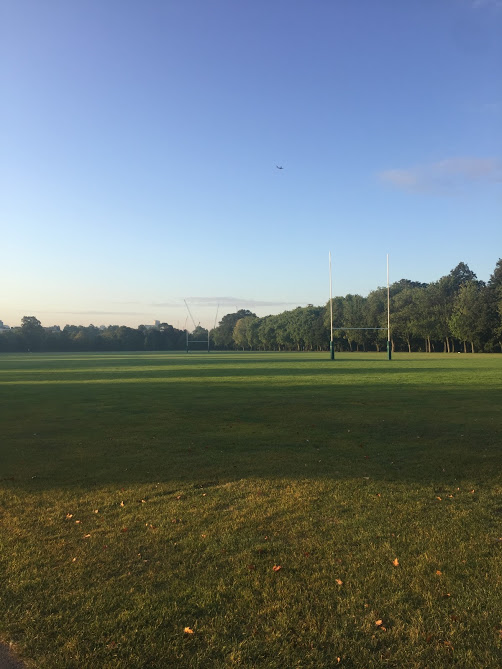I am a student athlete at my home university, Illinois Wesleyan University in Illinois, USA. I have played on the women’s lacrosse team for a year now. have had the best time doing so. Last fall, if someone would have told me I would be studying abroad this semester I would have said; “Yeah, right, like I’d miss lacrosse.” Yet, here I am. Like many student athletes, I was under the impression that study abroad was nearly impossible for me because it would mean missing either our shorter season. (for our team, it’s called fall ball, but may be known as spring ball to others) or our competitive spring season. However, studying abroad as a student athlete is much easier than you think.
1. Talk to your coach
My first step in becoming an athlete abroad was talking to my coach. I knew I would not be missing our main spring season so that gave me a little comfort but I was so nervous anyway. However, when I told her I wanted to go to London this fall, she was very supportive. She told me it was alright that I’d be missing our fall practices as long as I was ready for our competitive season in the spring. My coach even gave me some advice on where to look for teams. We talked about a workout plan for when I was abroad. I was also able to talk to my teammates about sending off season fitness packets my way. This way I can stay updated on the new workouts they would be doing. It might seem scary to talk to your coach about missing any practices or fall ball. However, it is so worth talking about because it can open a world of opportunities.
2. Research university teams and/or clubs
The first things I did when I decided to go to London, was look up teams I could play on. First, I looked to see if the university I was studying at had a team. Sadly, while they have a lot of sports teams, they did not have a women’s lacrosse team. My next step was looking up women’s club leagues. A quick Google search led me to the England Lacrosse Association (ELA) homepage. As it turns out, ELA has London well covered when it comes to teams. I was able to find a few clubs that were close to where I am living. After researching each team, I found one that was affordable and works with my weekly schedule. They were also understanding that I may miss a few sessions for class activities or personal travel. (Yes, that is correct. It is possible to play a sport and still travel to different countries on the weekends. Even though it means coming back early Sunday mornings to make games, I’m so happy to be playing.)
3. Find a buddy
The next step for me was finding another athlete (or anyone) who would be willing to workout with me. One of the girls I am living with is on the tennis team at my home university. For the first few weeks, we worked out together until we felt more familiar with getting around London. It
is really nice to have someone who understands the importance of staying fit; I would feel awful coming back to my home campus in the spring and not being able to perform my best for my team. Also, it never hurts to have a little company on a morning run.
4. Find a gym(and a park)
This one was a little harder to do prior to being in London, so do not feel bad if it takes a bit of time to find a gym. It was not until I got here that I was able to see how easy or hard it was to get to the gyms in my area and see what their hours were. I am also glad I waited because the gyms here have membership rates and daily rates. So, I am able to save a few pounds every month by only going to the gym on days where I lift weights. On almost every other day, I like to do my runs in Regent’s Park, which is only a two minute jog from where I am living. It is pretty amazing to be able to run through such a beautiful place everyday. A few gym tips that I definitely could have used before my first visit: (1) make sure you ask if they offer a student discount. (2) be sure to check your pounds to kilograms conversions for weights. (3) ask if the treadmills are measured in kilometers or miles.

It truly is such a beautiful park. It often has different sculptures put up, which is always a fun surprise.
5. Look up international rules:
The one thing I was not prepared for at all when I showed up to my first day of lacrosse in London was a different set of rules. Not every sport will have different rules internationally, but it is worth checking. I was very quickly picked out as American when I ran through the crease on defense. (which is perfectly legal in USA lacrosse, but internationally, it is illegal). I also found out that the gear I was using in America (a mesh strung stick) was prohibited by international rules. This would have been nice to know as it could have saved me a little extra packing space or I could have brought an internationally legal stick head. Nonetheless, everyone here is super nice about helping me figure out the correct rules, and it gives me an excuse to go watch a lot of lacrosse in the park!
Of course, I know some of this information will vary depending on the sport you play.

“Playing a sport abroad is an amazing opportunity to see a different style of play and grow your game, no matter the sport!”
That is my run down so far on how to be a student athlete abroad. I really recommend looking into studying abroad, no matter your situation. I have been her for almost a month now, and I have grown so much. The opportunities you get while abroad are like no other. I hope this helps you believe that you can make study abroad work for you.
Cassandra Jones is an English and Secondary Education student at Illinois Wesleyan University studying abroad in London for Fall 2019. Cassandra is a keen Lacrosse player and a lover of literature. She is very excited about finding ways to keep her passions alive in London and sharing them through her blog posts. Keep checking back for more of Cassandra’s blogs here.
